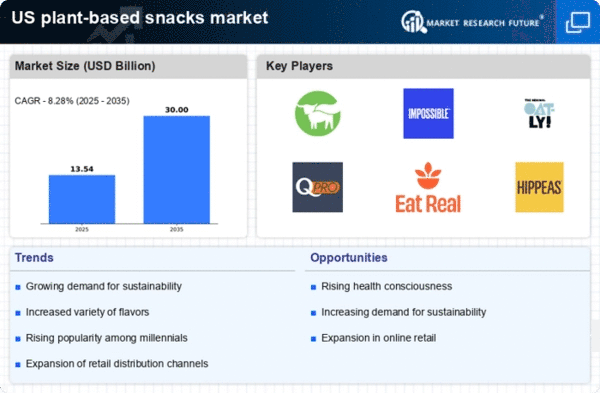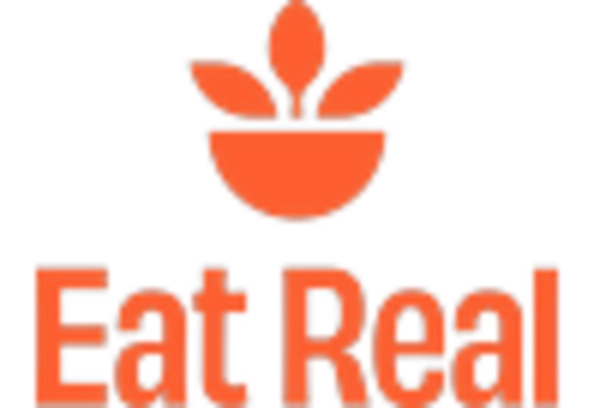The plant based-snacks market is currently characterized by a dynamic competitive landscape, driven by increasing consumer demand for healthier and sustainable food options. Key players such as Beyond Meat (US), Impossible Foods (US), and Oatly (SE) are strategically positioning themselves through innovation and partnerships. Beyond Meat (US) has focused on expanding its product line to include a wider variety of snacks, while Impossible Foods (US) emphasizes its commitment to sustainability and environmental impact. Oatly (SE), on the other hand, has been enhancing its brand presence through strategic collaborations with retailers, thereby shaping a competitive environment that prioritizes health, sustainability, and consumer engagement.
In terms of business tactics, companies are increasingly localizing manufacturing to reduce supply chain complexities and enhance responsiveness to market demands. The competitive structure of the market appears moderately fragmented, with several players vying for market share. This fragmentation allows for diverse product offerings, yet the collective influence of major players like Beyond Meat (US) and Impossible Foods (US) is significant, as they set trends that smaller companies often follow.
In October 2025, Beyond Meat (US) announced a partnership with a major snack food manufacturer to co-develop a new line of plant-based chips. This strategic move is likely to enhance Beyond Meat's market penetration and diversify its product portfolio, aligning with consumer preferences for convenient, healthy snacks. The collaboration may also leverage the partner's established distribution channels, facilitating quicker market access.
In September 2025, Impossible Foods (US) launched a new range of plant-based snack bars, targeting health-conscious consumers. This initiative reflects the company's strategy to diversify its offerings beyond traditional meat substitutes, tapping into the growing demand for nutritious snack options. The introduction of these bars could potentially strengthen Impossible Foods' brand positioning as a holistic plant-based food provider.
In August 2025, Oatly (SE) expanded its product line to include a new range of oat-based snack products, which are designed to cater to the increasing consumer interest in oat-based diets. This expansion not only reinforces Oatly's commitment to innovation but also positions the company to capitalize on the rising trend of oat consumption in the snack category. Such strategic actions may enhance Oatly's competitive edge in a crowded market.
As of November 2025, the competitive trends in the plant based-snacks market are increasingly defined by digitalization, sustainability, and the integration of AI technologies. Strategic alliances are becoming more prevalent, as companies recognize the value of collaboration in enhancing product offerings and market reach. Looking ahead, competitive differentiation is likely to evolve from traditional price-based competition to a focus on innovation, technological advancements, and supply chain reliability, as companies strive to meet the ever-changing demands of health-conscious consumers.

















